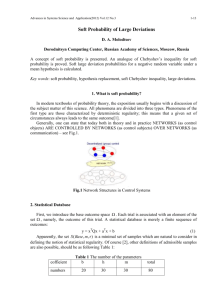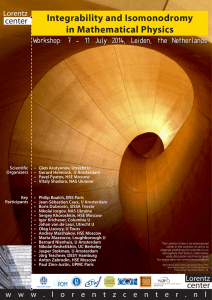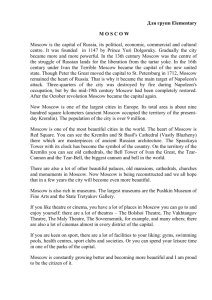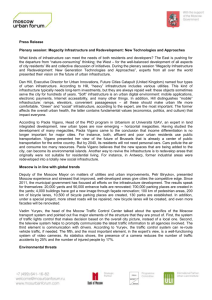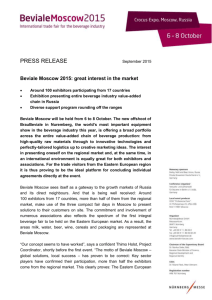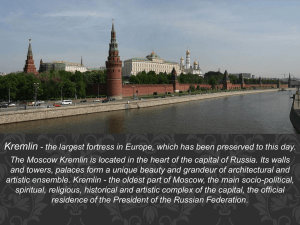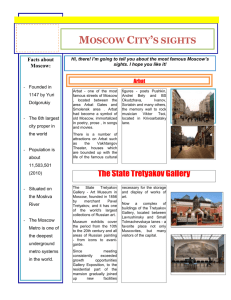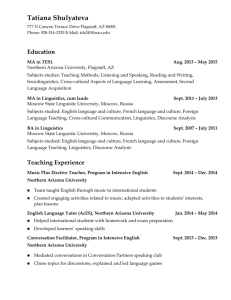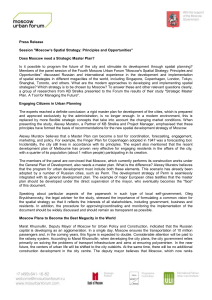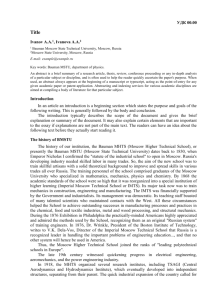Media systems
advertisement
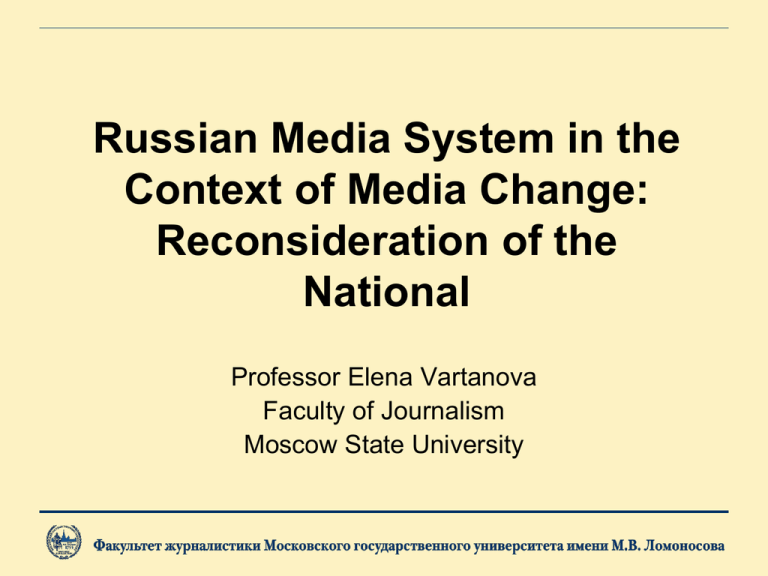
Russian Media System in the Context of Media Change: Reconsideration of the National Professor Elena Vartanova Faculty of Journalism Moscow State University One, Three, Two/Four, Five or Hybrid? • One – – – – • Three – • • Hallin, D. and Mancini, P. (2004) Comparing Media Systems. Three Models of Media and Politics. Cambridge: Cambridge University Press Two/Four – • UK: Curran, J. & and Seaton, J. (2003) Power Without Responsibility: Press, Broadcasting and the Internet in Britain. London: Routledge Poprtugal: Faustino, P. (2012) A Imprensa em Portugal - Transformações e Tendências (The Press in Portugal Transformations and Trends). Portugal: Formalpress Finland: Nordenstreng, K. &, Wiio, O. A. (eds.) (2003) Suomen mediamaisema (Finnish Media Landscape). Helsinki: WSOY Russia: Beglov, S. (2002) Chetvertaya vlastʼ: Britanskaya Modelʼ (The Fourth Estate: British model). Moscow: Moscow University Press; Woronenkova, G. (1999, 2011) Putʼ dlinoju v pjatʼ stoletij: ot rukopisnogo listka do informacionnogo obshestva. Nacionalnoe svoeobrazie SMI Germanii (The path length of five centuries: from hand-written sheet to the information society. The national identity of the media in Germany). Moscow: Moscow University Press; Sharonchikova, L. (2006) Pressa Francii v menjaushemsja mire (The Press of France in a changing world). Moscow: RAN; Urina, N. (2010) Zhurnalistika I Politika: Italjansky Opyt Vzaimodejstvija (Journalism and politics: the Italian experience of interaction). Moscow: Moscow University Press; Tkacheva, N. (2009) India: Mediasistema v uslovijah liberalizacii economiki ( India: The media system in a liberalized economy). Moscow: Moscow University Pres Siebert, F., Peterson, T. and Schramm, W. (1956) Four Theories of the Press. Urbana: University of Ilinois Press One or five?Research on BRICS media systems: Thussu, D. (2013) Communicating India's Soft Power: Buddha to Bollywood. New York: Palgrave Hybrid – Hardy, J. (2008) Western media systems. New York: Routledge, Chadwick, A. (2013) The Hybrid Media System: Politics and Power. Oxford: Oxford University Press. Media System or Media Trends? • Globalization • Rise of new media • • • • digitalization convergence of platforms media mobility interactivity • ‘Entertainization’ of content • Mediatization of reality • Role of advertising and PR Media System or Media Corporation? • Critical Political Economy – how capitalism/market works – systems manufacturing consent • Media Economics: – National and global media industries in focus • Media Management: – micro level – newsroom management + managoing innovations and creativity Media or Political System? • Democracy – Public sphere – public service broadcasting – Transparency: impact of new media • Press Freedom • Political Elites and Parties – Political parallelism • Civil Society – Journalism vs. social networks Ideal vs. Real • ʻNormative media theory and associated research seemed to presume that there could be only one ideal model of a media system on which all should aspire. This view has long been challenged, but the door has been opened to contemplate alternate kinds of media system arrangements that might be appropriate culturally or material for a given country. McQuail, D. (2013) Zhurnalistika I Obschestvo [Journalism and Society]. Moscow: Faculty of Journalism, p. 5. Changing the Focus: 2010s • From global trends: to national nuances • From global companies: to national adaptations • From global/international institutions: to national networks • From dominating paradigms/concepts: to national theoreticizing Why National? (1) • Legislation = rules and legal frames for media business and performance • Culture = media production and consumption – Moral/ethics = value system(s) in media • History = collective identities and collective agreements in a society and in/between communities as reflected by media Why National?(2) • Geography = the size matter (distribution, Imperial mentality, cost of technology, economic/cultural/religious/identity diversity) • Language = journalism roles and functions – Role of news media – Publicistics Media systems – Always universal: variables – Always national: contexts – Always hybrid: under pressures of economic, social, and time change

